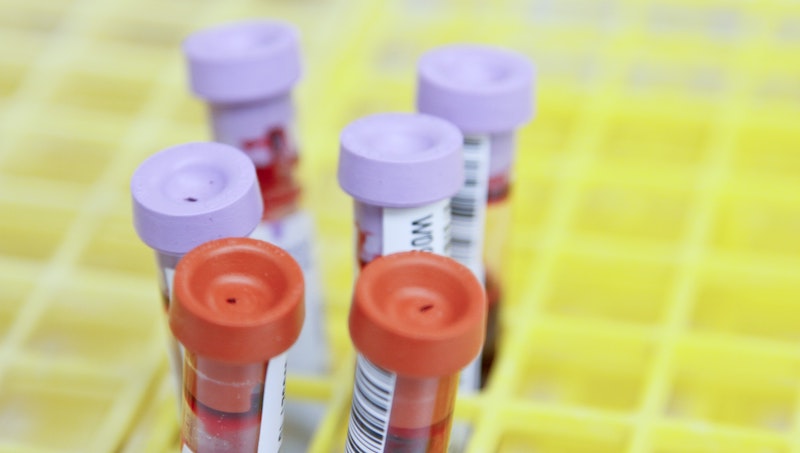Opening hours
| Monday-Thursday | 08:00 - 18:00 |
| Friday | 08:00 - 17:00 |
| Saturday | Closed |
| Sunday | Closed |
Contact
Cervical cancer screening

Cervical cancer is the easiest female cancer to prevent, with regular screening tests and follow-up. Two tests can help prevent cervical cancer or find it early:
The Pap test (or Pap smear) looks for precancers, cell changes on the cervix that might become cervical cancer if they are not treated appropriately.
The HPV test looks for the virus that can cause these cell changes.
The Pap test is recommended for all women, and can be done in a doctor's office or clinic. During the Pap test, the doctor will use a plastic or metal instrument, called a speculum, to widen your vagina. This helps the doctor examine the vagina and the cervix, and collect a few cells and mucus from the cervix and the area around it. The cells are then placed on a slide or in a bottle of liquid and sent to a laboratory. The laboratory will check to be sure that the cells are normal.
If you are getting the HPV test in addition to the Pap test, the cells collected during the Pap test will be tested for HPV at the laboratory. Talk with your doctor, nurse, or other health care professional about whether the HPV test is right for you.
When you have your PAP test, your doctor also may perform a pelvic exam, checking your uterus, ovaries, and other organs to make sure there are no problems. There are times when your doctor may perform a pelvic exam without giving you a PAP test. Ask your doctor which tests you are having, if you are unsure.
PAP TEST RESULTS
It can take up to three weeks to receive your Pap test results. Most results are normal. But if your test shows that something might not be normal, your doctor will contact you and figure out how best to follow up. There are many reasons why your PAP test results might not be normal. It usually does not mean you have cancer. If your PAP test results show cells that are not normal and may become cancer, your doctor will let you know if you need to be treated. In most cases, treatment prevents cervical cancer from developing. It is important to follow up with your doctor right away to learn more about your test results and receive any treatment that may be needed.
HPV
Genital HPV infection is a sexually transmitted disease (STD) that is caused by human papillomavirus (HPV). Human papillomavirus is the name of a group of viruses that includes more than 100 different strains or types. More than 30 of these viruses are sexually transmitted, and they can infect the genital area of men and women including the skin of the penis, vulva (area outside the vagina), or anus, and the linings of the vagina, cervix, or rectum. Most people who become infected with HPV will not have any symptoms and will clear the infection on their own.
There are important steps girls and women can take to prevent cervical cancer. The HPV vaccine can protect against most cervical cancers (Gardasil 9). Cervical cancer can also be prevented with routine cervical cancer screening and follow-up of abnormal results. The PAP test can identify abnormal or pre-cancerous changes in the cervix so that they can be removed before cancer develops. An HPV DNA test, which can find high-risk HPV (type 16, 18, 45, 31, 33, 52, 58, 35, 59, 51, 39) on a woman's cervix, may also be used with a PAP test in certain cases. The HPV test can help healthcare professionals decide if more tests or treatment are needed. Even women who got the vaccine when they were younger need regular cervical cancer screening because the vaccine does not protect against all cervical cancers.
CERVICAL CANCER
Cancer is a disease in which cells in the body grow out of control. Cancer is always named for the part of the body where it starts, even if it spreads to other body parts later. When cancer starts in the cervix, it is called cervical cancer. The cervix is the lower, narrow end of the uterus. Also known as the womb, the uterus is where a baby grows when a woman is pregnant. The cervix connects the upper part of the uterus to the vagina (birth canal). Cervical cancer is highly preventable in most Western countries because screening tests and a vaccine to prevent HPV infections are available. When cervical cancer is found early, it is highly treatable and associated with long survival and good quality of life.
